Post-operative nutrition for bariatric surgery is very important for sustaining weight loss and health. As you may know, daily vitamins and minerals are a necessary part of care and maintenance after having gastric bypass surgery. After surgery, the body’s digestive processes have been altered, and your body becomes less capable of absorbing necessary nutrients.
To maintain proper nutrition and functioning after you’ve had bariatric surgery, you will need to take a multivitamin every day for the rest of your life. Niacin is one of the essential vitamins you need to supplement.
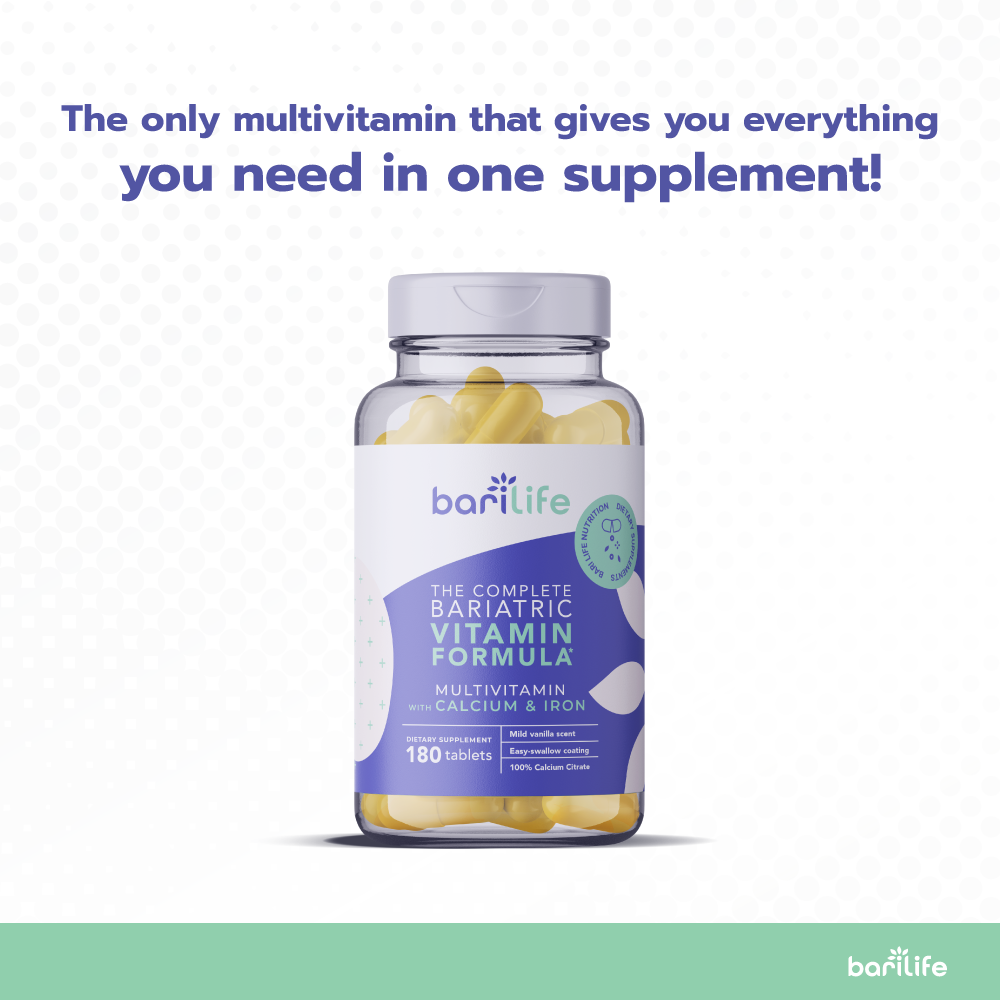
Niacin, also known as vitamin B3, is a water-soluble vitamin found in some foods and is available as a dietary supplement. It is found largely in adipose tissue. The two most common forms of niacin in food and supplements are nicotinic acid and nicotinamide. The body can also endogenously convert the amino acid tryptophan into nicotinamide.
Since Niacin is water-soluble, any excess that the body does not use is excreted in the urine. It is not stored in the body. This is why it is important to supplement this B vitamin daily.
The role of Niacin in the body
Like all B vitamins, niacin plays a role in converting carbohydrates into glucose, metabolizing fats and proteins, and keeping the nervous system working properly. It also helps build proteins in the skin and protects against damage from environmental factors.
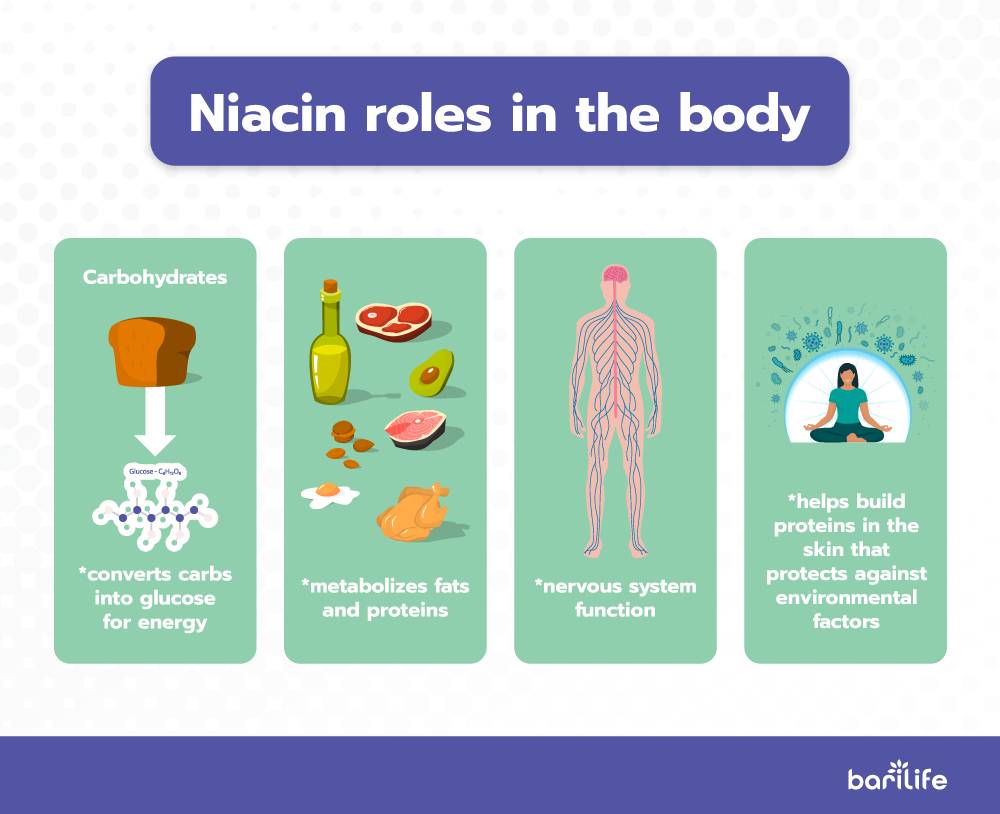
All tissues in the body convert niacin absorbed from supplements and the diet into its active form, the coenzyme nicotinamide adenine dinucleotide (NAD). There are at least 400 enzymes in the human body that require NAD to activate chemical reactions, which is more than any other coenzyme derived from vitamins. NAD is also converted into another active form, the coenzyme nicotinamide adenine dinucleotide phosphate (NADP).
NAD is a necessary enzyme for catabolism. Catabolism is the process of breaking things down into smaller parts; for example, breaking down the food you eat into energy for day-to-day activities. Glycolysis is a NAD-dependent catabolic reaction that is used by all cells in the body for energy generation. Your body needs niacin to derive energy from the food you eat.
NADP is required for anabolic reactions. Anabolism is the process of building molecules from smaller units; for example, building and repairing muscle from amino acids. NADP also promotes the antioxidant function of the cells.
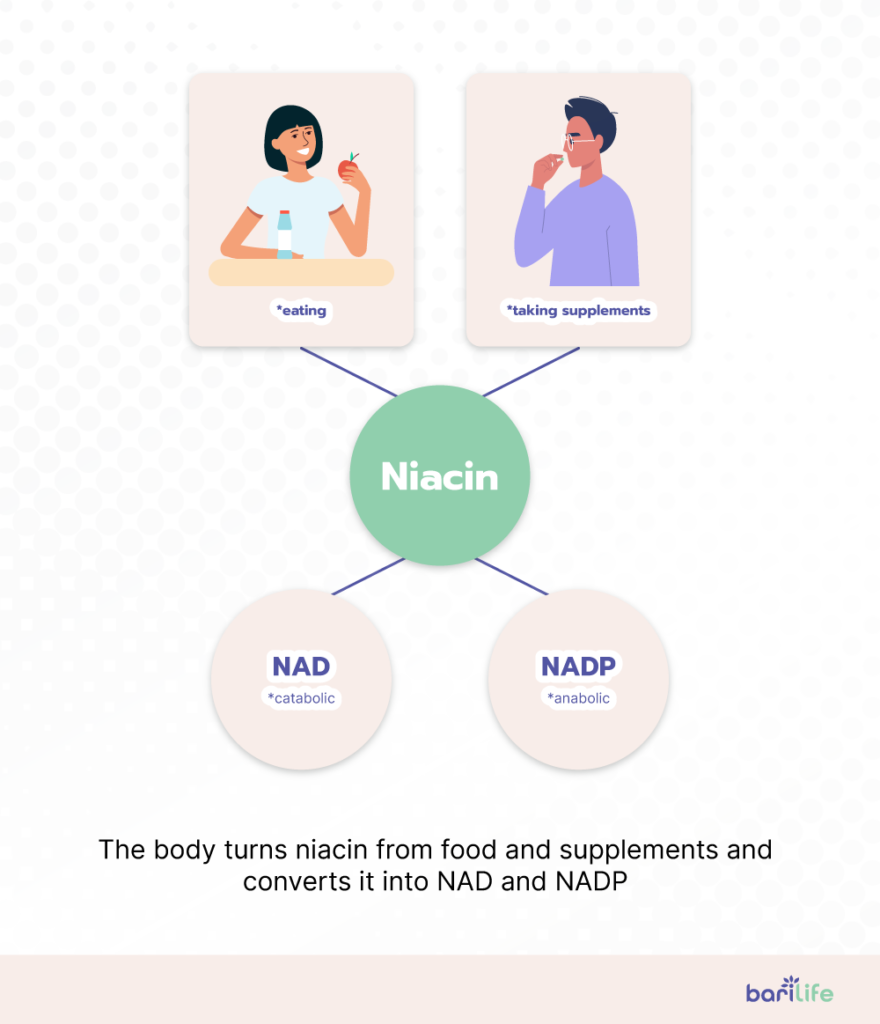
There is research that suggests that niacin can increase HDL cholesterol (the “good” cholesterol) and lower LDL cholesterol (the “bad” cholesterol). Prescription niacin is often used to treat dyslipidemia. Although niacin can positively alter blood lipid profiles, evidence shows that niacin therapy does not decrease the risk of death, heart attack, or stroke.
Given that the body’s digestive processes have been altered after bariatric surgery and the body becomes less capable of absorbing necessary nutrients, it is vital to ensure your body gets adequate amounts of niacin to keep your metabolic processes and nervous system functioning properly.
The ASMBS guidelines for Niacin
The American Society for Metabolic and Bariatric Surgery (ASMBS) issues guidelines related to the pre-and post-operative screening for malnutrition of specific vitamins and minerals. They also provide guidelines for the minimum intake required to prevent nutrient deficiencies.
According to the ASMBS, niacin deficiency is rarely reported in patients who have received adjustable gastric banding, gastric sleeve, Roux-en-Y gastric bypass, or the duodenal switch.
Postoperative niacin levels are usually only monitored in patients who exhibit signs and symptoms of deficiency.
There are no specific guidelines from the ASMBS for niacin dosing. The recommended dietary allowance (RDA) for niacin for the general population is 16 mg for men and 14 mg for women. To prevent deficiency, post-bariatric surgery patients should maintain appropriate nutrition and take a high-quality multivitamin supplement every day for life.
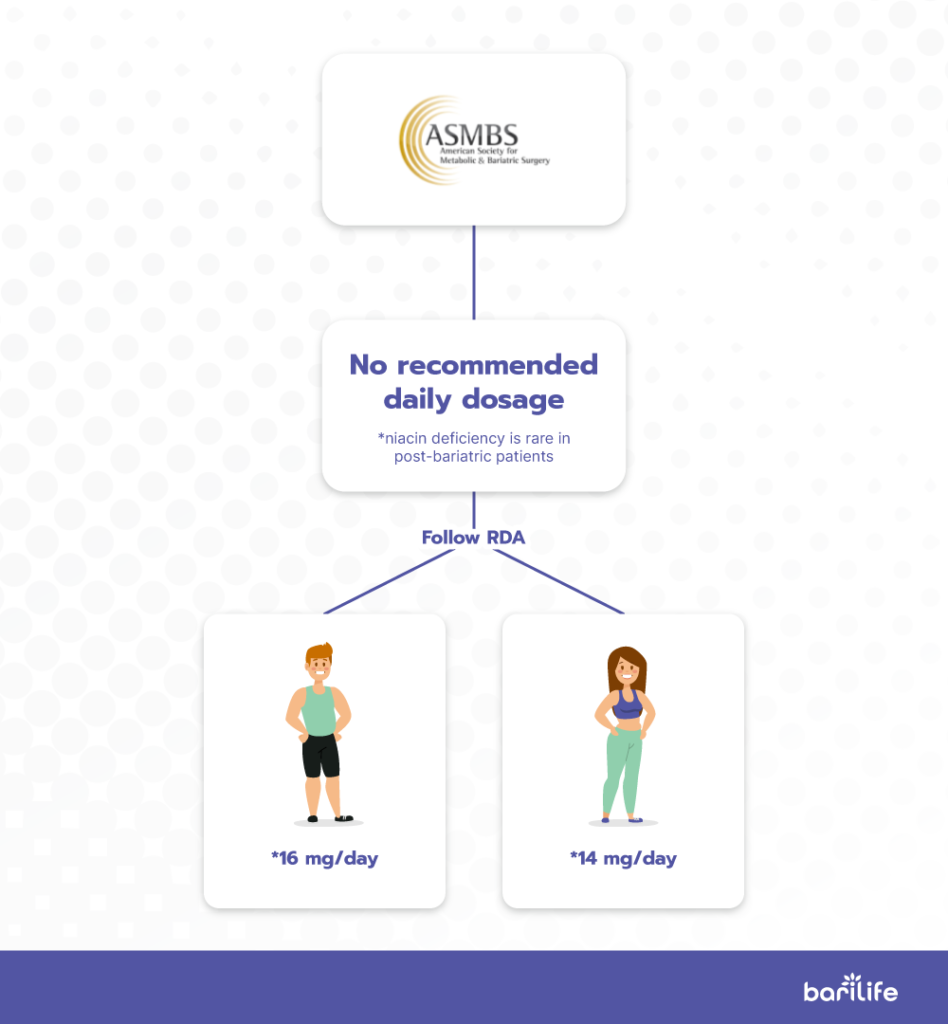
Signs, symptoms, and complications that can arise for becoming deficient
Although niacin deficiency is rare in the United States, undergoing bariatric surgery can increase your risk of becoming deficient.
Many people who are deficient in niacin are unaware that they are lacking this vital nutrient due to the fact that early symptoms are generally mild. Severe niacin deficiency, called pellagra, can cause symptoms related to the skin, digestive system, and nervous system.
Symptoms of pellagra are referred to as “the 4 D’s” – diarrhea, dermatitis, dementia, and death. Specifically, they include:
- thick, scaly pigmented rash on skin exposed to sunlight
- swollen mouth and bright red tongue
- vomiting and diarrhea
- headache
- apathy
- fatigue
- depression
- disorientation
- memory loss
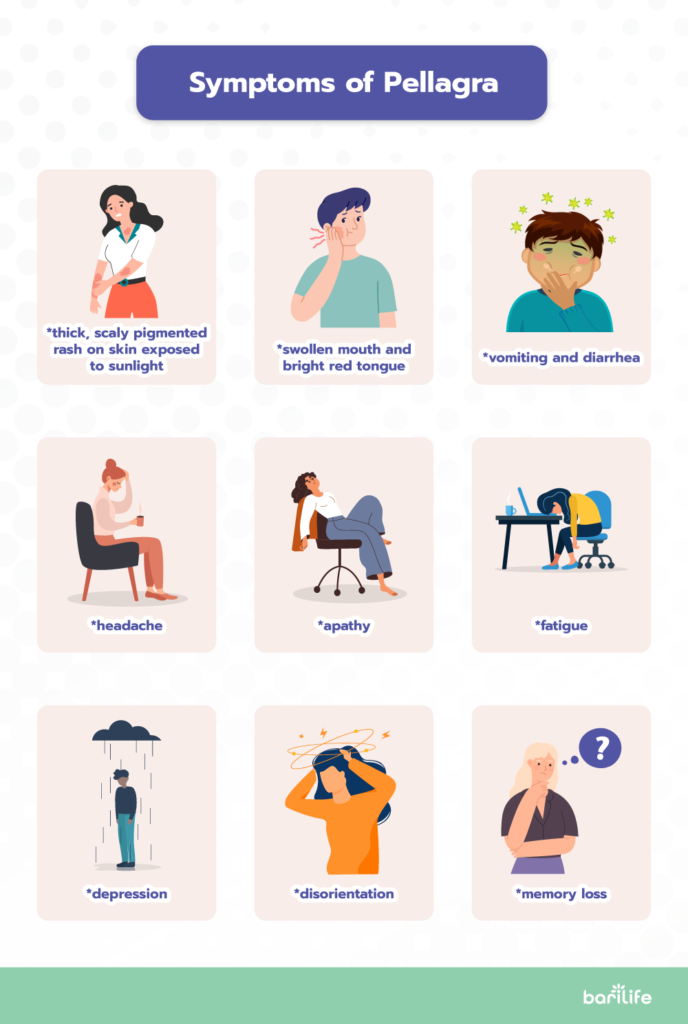
Weight loss surgery impairs the body’s ability to properly absorb nutrients, so niacin supplementation is needed to support a healthy metabolism and nervous system. If you believe you have any of the above signs or symptoms of niacin deficiency, consult your physician to have your niacin levels checked.
Bari-Life vitamins has exactly what you need
There are so many vitamins and mineral supplements on the market, and they are not all created equal. There are a variety of different brands and doses, not to mention products that contain multiple vitamins in one supplement. It can be really difficult to figure out what vitamins to take and how to choose which product is right for your needs.
After bariatric surgery, you need to supplement many different vitamins and minerals to keep you healthy. This can also be very overwhelming if you have to take multiple pills at different times of the day.
Bari Life takes the guesswork out of vitamin supplementation and simplifies supporting your nutritional needs. Bari Life Vitamins are formulated and developed by a team of bariatric medical professionals with one goal in mind – to help bariatric patients get the nutrients they need to stay healthy.
They offer a variety of different options, from tablets to powders, helping you get the correct amount of vitamins and minerals in the least amount of pills possible. Bari Life multivitamins contain 40 mg of niacin which provides 250% of the daily recommended intake to prevent deficiency.
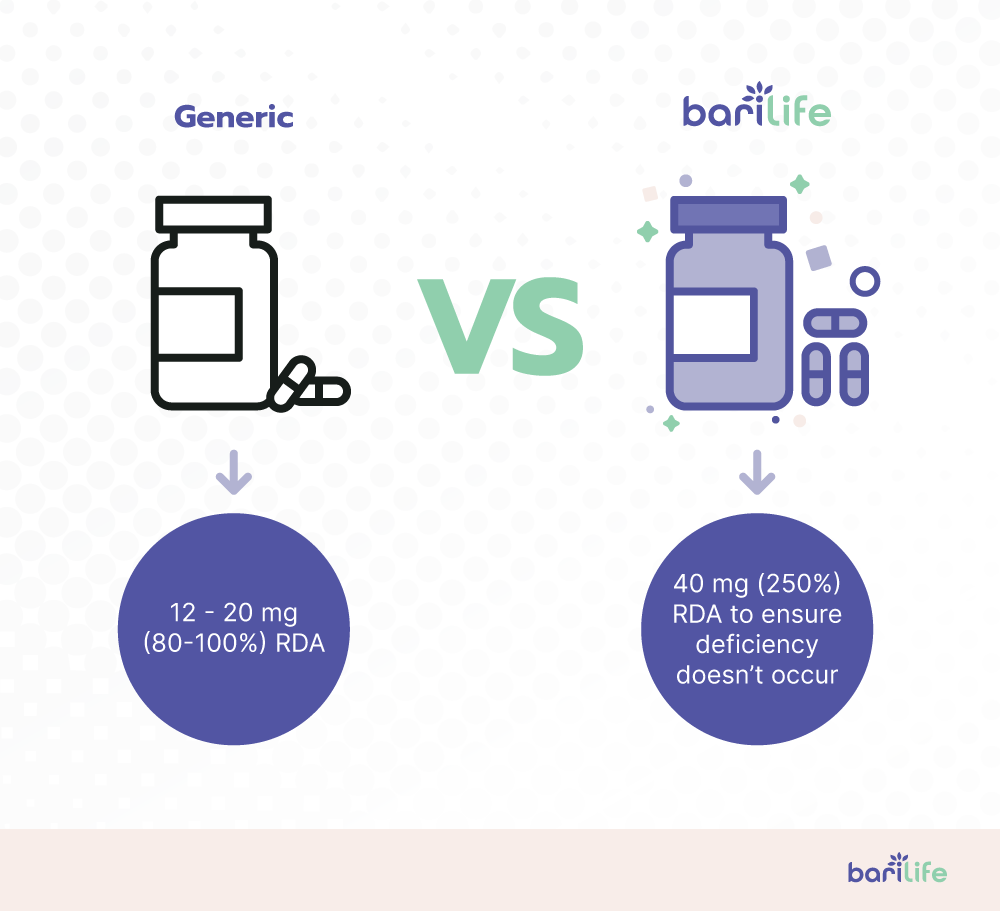
Staying on track with lifestyle changes like nutrition and exercise is important to your success after bariatric surgery, so trust in the vitamins from Bari Life to provide you with the supplementation you need to stay healthy.




What are your tips and tricks to post-bariatric success?